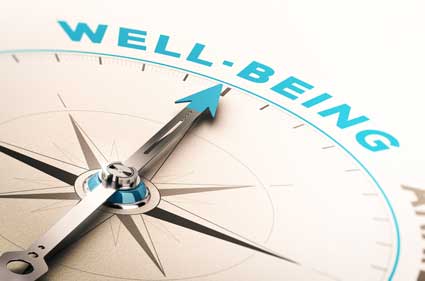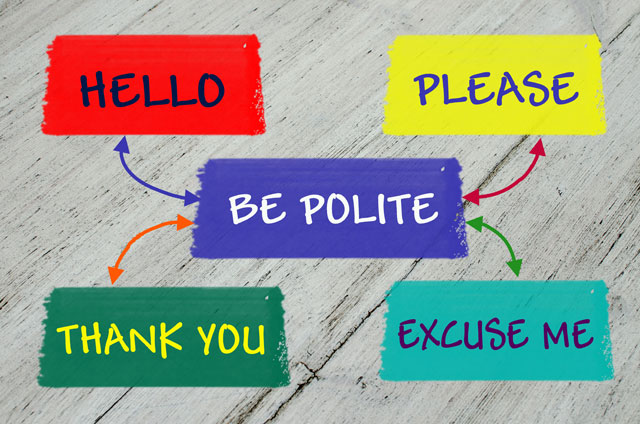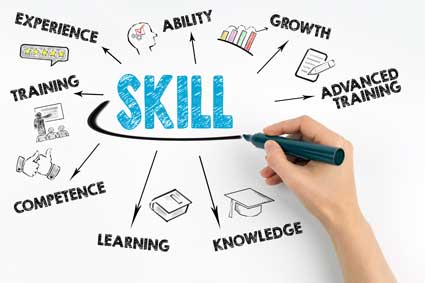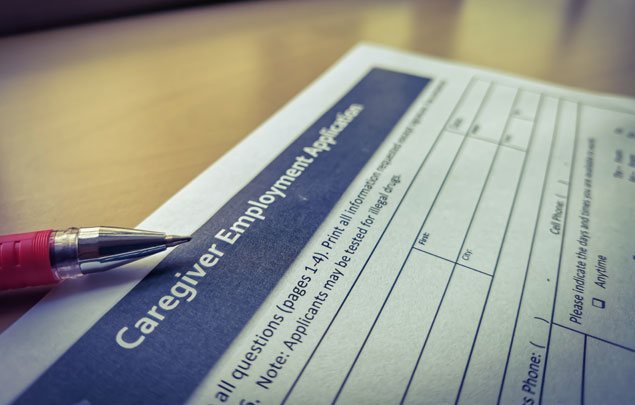As adults, we often tend to forget just how important some of the years of childhood really are. But what psychologists are quick to point out is that it is during our childhood, much of who we become is shaped. As this foundation is formed, it can be for the good or bad, and then most people go on to act accordingly as adults. That is not to say that every child who has a childhood that isn't wonderful will go on to not be amazing. Many still do; but in the larger picture, we have to acknowledge just how important those elementary and middle school years are to a child's self-esteem.
In this article we are going to take a look at the elementary and middle school years, how they impact a child's self-esteem, and what can be done to help build it up. Like most years in childhood, the elementary and middle school years play an important role in child development.
Elementary Years
Prior to beginning elementary school, most children have spent their days just hanging out with parents or caretakers in an informal manner. They have fun, live by a loose schedule, and don't have much in the way of responsibilities. But that all changes once they begin elementary school. The changes that take place are ones that help, or hinder, the child's self-esteem. This is largely impacted by how they will acclimate to their new surroundings, how they will do with their studies, and how well they will get along with their peers.
As children work their way through elementary school, many find that they have difficulties with grasping the materials being studied. They may even have difficulty making friends, or become the target of bullying. Such things can have a negative impact on the child's self-esteem. Children increasingly become sensitive to their peers and with fitting in with others at school.
Middle School Years
As children enter the middle school years it is increasingly important to them that they fit in with peers. It is at this age that children often care more about what their peers think of them, than they do about what their parents think. This isn't to be mean to the parents, but they have such a strong desire to be liked and accepted by their peers, that they tend to focus on them more than they really should.
During this time there are also issues of bullying that become more predominant. It is also a time when kids begin to feel more peer pressure, and they may question themselves. The middle school years are often a period of transition for kids, as they make their way from being a young child to moving on to the next step -- high school, and becoming an adult. They may experience a lot of uncertainty and want to test their boundaries.
Building Self-Esteem
At both the elementary and middle school levels, it is important for parents, as well as other adults who are in the lives of children, to do things to build their self-esteem. Parents play a crucial role in building the self-esteem of a child, but they are not the only ones who do. Other adults in their life, such as teachers, coaches, and organizational leaders (e.g., Girl Scouts), do as well.
Here are some things that can be done at the elementary and middle school level to help build a child's self-esteem:
-
Show an active interest in the child. It is important that adults ask kids how their day was, what their likes and dislikes are, and include them in some decision-making. This helps kids to feel valued, and that their opinions matter.
-
Focus on using positive encouragement to get kids this age to do things. Also, when they do engage in things, give them acknowledgment and praise for their efforts, rather than always focusing on the outcome. Some children may never make a basket in basketball, for example, but praising them for their effort can give them a nice self-esteem boost.
-
Teach children this age how to act and react. They will be in situations where they will need to communicate, use their manners, and possibly even turn down negative advances. Have chats with them about how they can behave in certain situations, so that if something arises they feel confident in responding. This can be anything from meeting an adult, shaking hands, and looking them in the eye, to turning down unwanted advances from people regarding sex or alcohol. The more they feel prepared to address the situation, the more confident they will feel.
-
At this age children need feedback and corrections. They are at an age where teaching them right from wrong is a must. But it should be done in a positive way that respects them and aims to teach them, rather than one that aims to punish them.
-
Be sure to give children positive attention. It's one of the most important things that people can do with children this age. They need to feel loved, supported, and valued, and that can be accomplished by spending quality time with them, showing interest in them, and helping to set and stick to limits and boundaries.
-
Give children age-appropriate tasks that they can do. These responsibilities will help them to build self-esteem as they take on the initiative to get things done and then accomplish them.
Interested in learning more? Why not take an online Building Self-Esteem in Children course? -
If there are issues stemming from school, speak with the child's teacher, and/or the school principal or counselor, in order to see what can be done to address any situations.
Beware of Influences
Coming up next, we will look at the all-important teen and young adult years, and the self-esteem issues that surround them.
Some researchers have found that children reach their peak self-esteem level around the age of nine. How a child feels about themselves at this age is usually pretty high, and unfortunately it often goes down from there. As kids mature and enter into high school, there are many problems that arise, leading teenagers to feel insecure, and their self-esteem suffers as a result.
Gender Matters
By the time children enter into their teen years, there are some important issues they are plagued with. Females experience even more problems than males, because they tend to live in a society where such a high level of importance is placed on beauty. Although beauty is considered to be in the eye of the beholder, most teenage girls suffer from body image problems that lead them to believe they are ugly, fat, or need some sort of adjustment by means of plastic surgery.
So where does all this body image insecurity come from? There are several things that can contribute to it, including family and peer relationships, but one of the major culprits is the media. Teenagers watch a lot of television, movies, and read a lot of fashion magazines. Each of these things contributes to creating a beauty image standard in their mind that they soon feel they don't measure up to, which leads to a lower self-esteem. A study by Kaiser Foundation found that:
-
Nearly 60 percent of female characters in movies and commercials comment about their appearance. In comparison, only 24 percent of male characters did the same.
-
In teen magazines, 37 percent of all articles focus on appearance, and over half of all the advertisements in them do.
-
In commercials that are aimed at getting the attention of teenage girls, they use beauty as an appeal around 56 percent of the time. With males it is only 3 percent of the time.
Young people tend to see a lot of fashion models and will often make comparisons between their body and the one that the model has. However, most fashion models tend to be thinner than around 98 percent of the women. Not only did young people watch a lot of television, but the American Academy of Pediatrics reports that, on average, they view around 40,000 advertisements per year. It stands to reason that if half of them are focused on beauty, youngsters are getting the message drilled into their head that beauty is a big issue. And when they look in the mirror and don't measure up to the beauty standards they see on television, they tend to have a lower self-esteem.
Problems Arise
So what's the problem with teens, and young adults, not feeling they meet the beauty images the country has set forth? A lot! There are numerous problems that can arise from the lower self-esteem that accompanies this, including:
-
There are five million Americans who suffer from eating disorders each year, including bulimia and anorexia. Of these, only 5 to 10 percent of the cases are males.
-
Eating disorders are believed to primarily start during the teenage years, although there are cases of it beginning as early as the age of 8.
-
Teens with low self-esteem are more prone to bullying, and engaging other negative behaviors, such as taking alcohol, drugs, or engaging in sexual activity.
-
Those with low self-esteem are more prone to also becoming depressed. Furthermore, suicide is the third leading cause of death in those ages 15 to 24.
Constructive criticism can be helpful at times. But it's all in what people say. Rather than saying to a child, for example, that they really messed up on a recent test, tell them that you really believe they are capable of doing better and with some studying you are sure they will bring the grade up the next time.
Addressing the Issue
As you have just learned, there are many problems that arise from teens and young adults having low self-esteem. It is important that the adults in their life work at helping them to have a higher self-esteem, which will help to keep them safer and making better choices in life.
Here are some things that adults can do to help build the self-esteem of a teenager or young adult:
-
Establish rules and guidelines for them to live by, and enforce them. It is important for teenagers to have clear rules to live by, which will help them build self-esteem. It's also necessary that parents be consistent with the rules, so that teens know what to expect, and can behave accordingly.
-
Keep the criticism in check. If there are issues that need to be worked on, focus on taking a positive approach in talking to them about it. Also, when discussing the behavior that needs improving, be sure to focus on the behavior, rather than the person. Otherwise they may associate it with them being a bad person, rather than there being some negative behavior that needs addressing.
-
Look for their strengths and the things they do well, and compliment them on those. Offer them encouragement, support, and be there to listen. It's a stressful time they are going through and sometimes just having someone there to listen will go a long way. Let them know you are proud of them when they do well.
-
As difficult as it may seem, it is important to let teens make some of their own decisions. This will empower them and help build self-esteem. Compliment them when they make good decisions on things.
-
Be a good role model. It is important that adults be good role models for teens and younger adults.
-
Keep what you learned about the media's influence in mind and talk to teenagers about it. Help them to see how corporations use beauty to try and sell them products, and how those images lead to problems within teenagers. The more they can recognize the marketing tactics for what they are, the better off they will be and will stop comparing themselves to the images.
-
Give teens the opportunity for self-expression. Sure, they may go through a period of dressing strangely, or some other odd things. But as long as it is not something that is dangerous or will do long-lasting harm, give them the opportunity to explore and express themselves. Just because they wear elephant ear bell bottoms throughout their senior year doesn't mean that they will wear them forever (and as far as we know, nobody from the 70s suffered long-term damage from wearing them!).
Going Forward
































